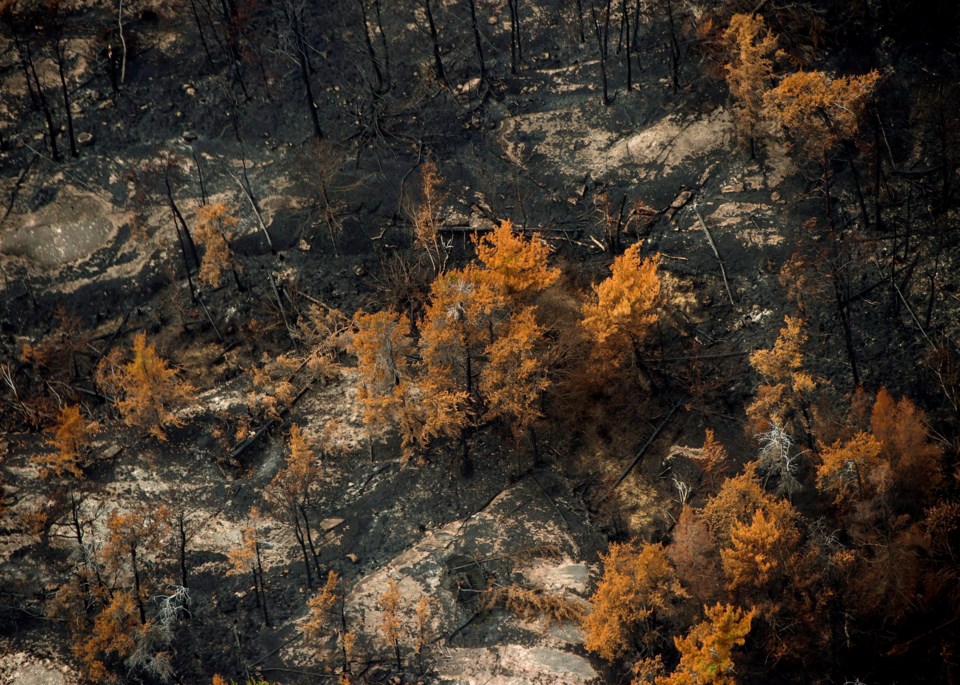EDITOR’S NOTE: This article originally appeared on The Trillium, a new Village Media website devoted exclusively to covering provincial politics at Queen’s Park
Forest firefighters in Ontario aren’t paid enough, meaning longtime rangers are leaving, crews are smaller and less experienced, and the province is getting worse at controlling fires, which will only increase under climate change, advocates say.
“This is a life and death situation,” said Mark Belanger, a fire ranger for the past 30 years. “We’re no longer capable of providing effective and timely fire response.”
He spoke to media on a Zoom call Monday hosted by the Opposition NDP, who called on the Ford government to up the firefighters’ pay.
Governments across the country are struggling to attract fire rangers. The danger, isolation and low pay deter many. Ontario has been aware of the problem for years.
It’s “a job from hell,” Kiiwetinoong NDP MPP Sol Mamakwa said.
“They will work in fire and smoke up to 16 hours a day and are constantly exposed to carcinogens in the air they breathe and the clothing that they wear,” Belanger said.
Ontario is 50 crews short this year because people keep leaving the profession, he said. There are 120–150 fewer fire rangers this year than there were in 2019, according to OPSEU, the public service union that represents them.
Full-time positions have been cut in favour of short-term contracts, Thunder Bay–Superior North NDP MPP Lise Vaugeois said.
A crew leader makes $17,000 for a six-month contract, with no isolation, standby or danger pay — a wage that has only risen by about one per cent in the past 15 years, Belanger said. It can take 100 hours of overtime just to break even with living costs, he said.
Fire rangers currently make between $22.89–$29.26 per hour, Natural Resources and Forestry Minister Graydon Smith's office said.
"Like many other industries/employers across Ontario, the [Ministry of Natural Resources and Forestry] has positions that are being impacted by a highly competitive labour market and economic factors," Smith's spokesperson, Melissa Candelaria, said in a statement. "The Ministry has been and continues to explore recruitment and retention strategies to ensure the province continues to have highly trained and capable wildland firefighters, operational staff, and support staff to keep communities safe."
When Belanger started, he said the standard was five-person crews with up to 20 years of experience each. Now, the province deploys four-person crews, many of them students.
This year, the Ford government extended the application period and began covering training costs to attract more rangers. But new blood isn’t the solution, Belanger said, when some areas have seen more than 30 per cent of their experienced leadership disappear.
“I’ve personally provided more than 20 references to individuals who have gone on to better job opportunities that allow them to support their families,” he said. “Even entry-level positions with other ministries that have similar deliverables pay between $12–$16,000 a year more.”
As climate change increases, experts agree the world will see more and worse forest fires. This year is already the worst fire year in 15 years, Belanger said, noting the smoke that darkened the skies in Toronto and parts of the United States.
Ontario, like other provinces, has had to import firefighters to help out. Smith's office noted Ontario's mutual aid partnerships with municipalities, Indigenous communities, provinces, and countries.
"These agreements can supply additional personnel and equipment as needed to support wildland fire response in Ontario," Candelaria said.
But they can only be used in “very specific, low-risk assignments” since they’re less familiar with the province’s unique biosphere, Belanger said.
The Mexican firefighters that came to Ontario this year, for instance, were equipped with machetes — great for cutting through jungle brush, but useless in a boreal forest, he said.
OPSEU has launched OntarioIsBurning.ca, which redirects to a form that will send an email to someone’s MPP, Premier Doug Ford and Smith, calling on them to take action.
Unlike regular firefighters, forest fire rangers are allowed to strike, Belanger said — but only during contract negotiations, and with emergency coverage in place.
Their contract is up on Dec. 31, 2024, Smith's office said.
The government cut the emergency forest firefighting budget by 67 per cent in 2019, NDP Leader Marit Stiles said.
However, that figure is misleading. It comes from comparing an interim estimate for the 2018-19 year to the base amount for 2019-20. Because the government's practice is to add funds to the base amount during the year based on how severe the fire season is, it's not an accurate comparison of what was spent.
Smith's office added that the current year's base allocation was increased to $134.9 million from $100 million the year prior.
"As this year’s fire season unfolds, we will continue to dedicate the necessary resources to ensure the safety and protection of our communities," Candelaria said.
The government is “sitting on a $22 billion surplus right now,” Stiles said, referring to Ontario’s pile of unallocated money for the next four years, according to the accounting of the independent Financial Accountability Office. It’s not actually a budget surplus, but the province is likely in for some of those, too.
“It's, what, a contingency fund for a rainy day?" said Stiles. "Well, guess what, the disaster is here.”
This story was updated based on information on the firefighting budget provided by the ministry after it was initially published.
